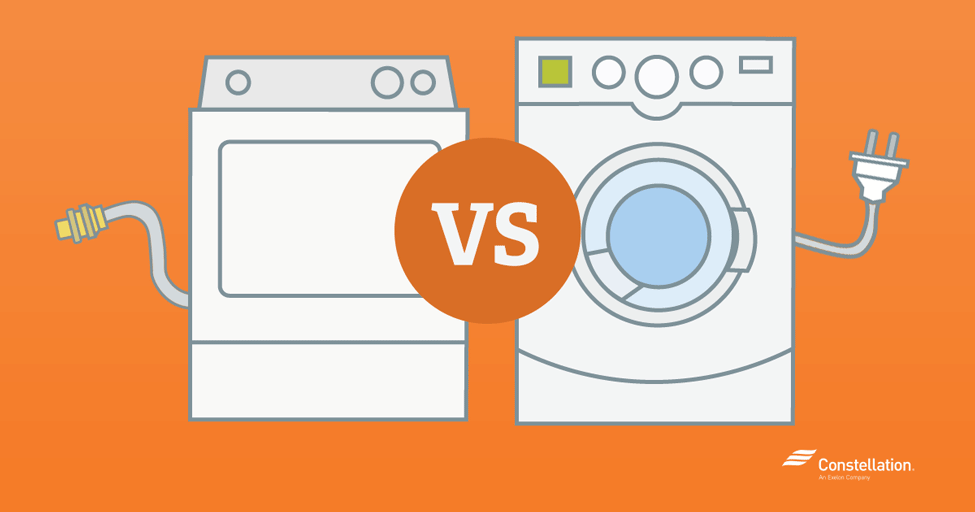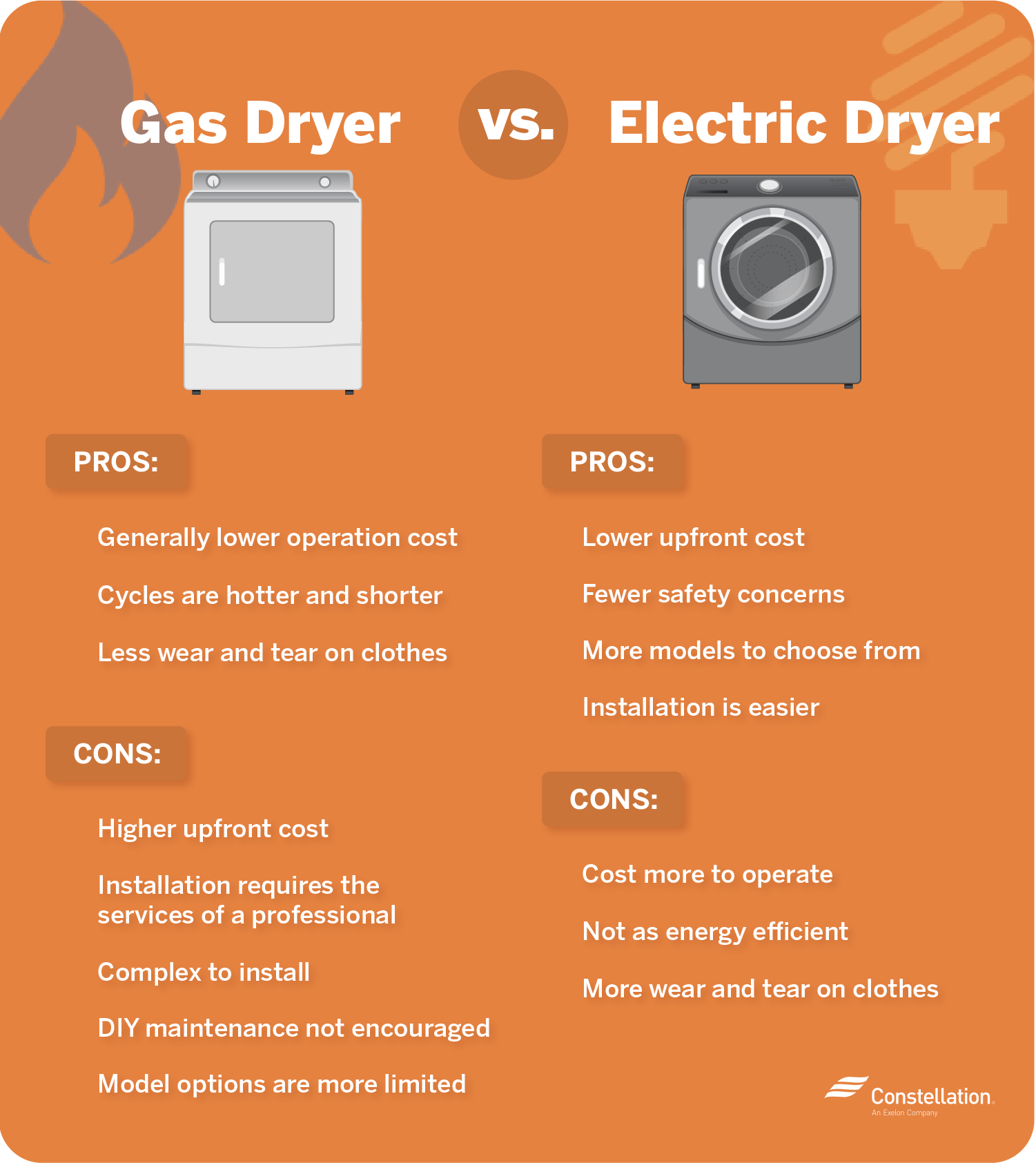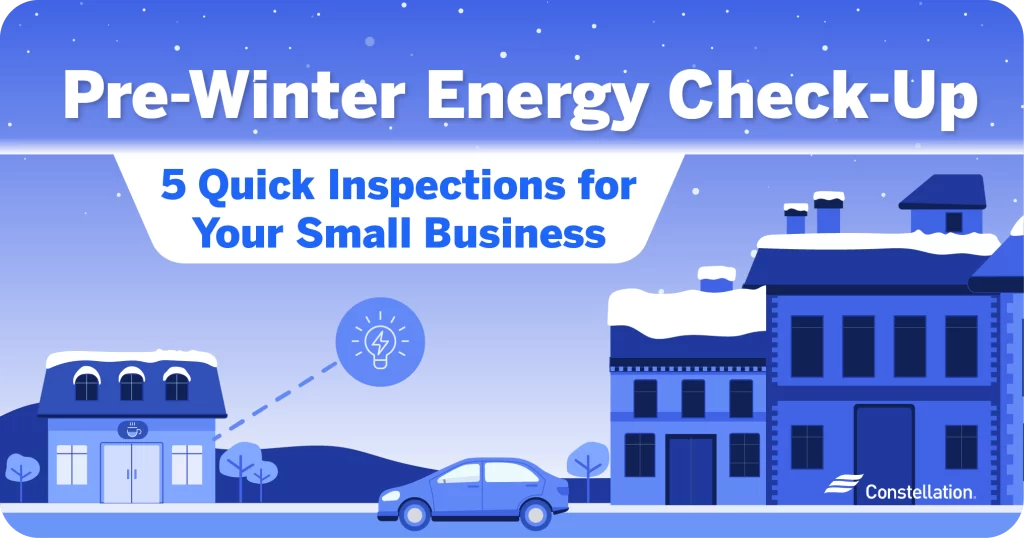
- Category:
Energy Efficiency -
Last updated:
July 25, 2022
Gas vs. Electric Dryers: Which Is Better?
When deciding between a gas dryer vs. electric dryer, your final decision can have a major effect on your power bill. If you’re like many families, you’re doing about 400 loads of laundry every year, and that represents about six percent of your energy bill.
In most cases, your dryer is the second biggest consumer of energy in your home. So your choice will likely be based on many factors, including energy efficiency. Many homes have both a gas hookup and a 240-volt outlet so you can choose either a gas or electric dryer. In considering your options, however, it helps to start with a good understanding of how each one works and how they compare.
What’s the difference between gas and electric dryers?
The main difference between a gas vs electric dryer is the way they heat the air that dries your clothes. Both blow hot air through spinning clothes and remove the resulting airborne moisture with fans. The difference between gas and electric dryers is that gas dryers use propane or natural gas to heat air and electric dryers push air over metal coils heated by electricity. You will connect to the gas hookup with a gas dryer and with electric, to the special 240-volt outlet.
How to determine which type of dryer you have
You might be wondering: Is my dryer gas or electric? Take a look behind your appliance and see what kinds of connections it has. If your dryer is electric, it’ll have a heavy cord and large plug. If you have a gas dryer, you’ll see a flexible steel gas connector and exhaust pipe, along with a regular electric plug. Gas dryers use a little electricity to run their motors and displays. Both kinds of dryers have a flexible duct that vents the moist, hot air and lint outside your home.
Gas vs. electric dryers
As with so many things, you take in as much information as you can and then make the choice that best suits your situation, usually involving trade-offs. You’ll want to compare costs to buy the two types of appliances, how installation expenses differ, how much you plan to use the dryer and how much it will cost to power each type. You can also review our guide to buying energy-efficient appliances.

Gas dryer pros and cons
In the gas dryer vs electric dryer debate, here are some gas vs electric pros and cons that apply to regular dryers, as well as smart dryers:
Pros:
- The price of natural gas is generally lower than electricity–depending on where you live and other variables.
- Gas dryers are usually better then electric when it comes to dry time, as they tend to run hotter than electric dryers.
- Wear-and-tear on your clothes is lower since they spend less time tumbling in the dryer.
Cons:
- Gas dryers typically cost a bit more than electric dryers.
- Installation requires the services of a professional, which adds to the initial cost.
- Gas dryers require proper ventilation, which makes them more complex to install.
- Do-it-yourself maintenance usually isn’t possible.
- Model options are more limited.
Electric dryer pros and cons
In deciding which is better, gas or electric dryers, electric dryers have their own set of pros and cons to factor into your decision:
Pros:
- Electric dryers generally have lower upfront costs than gas dryers.
- There are fewer safety concerns with electric dryers.
- You have more models to choose from.
- Installation is easier. Plug it in and connect the vent and you are ready to go–assuming your laundry room is wired for 240 volts.
Cons:
- Electric dryers may cost more to operate than gas dryers.
- Energy efficiency is not a strong point for electric dryers. They need more time and energy to dry your clothes–sometimes twice as long.
- Long run-times mean more wear and tear on your clothes.
Which is more energy-efficient, a gas or an electric dryer?
When weighing your options and figuring out what’s more efficient, a gas or electric dryer, consider factors such as the air temperature your dryer can produce, the humidity inside the dryer when it’s operating and the volume of air flowing through your clothes. Because they use so much energy, choosing an energy efficient dryer is one of the best ways to save energy in your home.
The Department of Energy uses a measurement called the Combined Energy Factor (CEF). That number is calculated as the weight of clothes in pounds divided by the energy used in a drying cycle measured in kWh. Models with an ENERGY STAR® rating are about 20 percent more efficient than other dryers. That’s significant, given the average home power usage.
Safety considerations for gas and electric dryers
While a properly installed and well-maintained dryer should give you years of trouble-free service, you still need to be aware of safety concerns. Gas fumes can leak from the appliance and connections, creating a risk of explosion. Other toxic fumes can also leak from improperly connected and vented units.
Considering gas vs electric dryers, both pose electrical dangers if not grounded properly or connected to the right kind of outlet. Both can produce carbon monoxide if you don’t vent them properly. Dryer vents must be kept clean of lint, or they can become a fire hazard. Having a professional install your appliance cuts the risk of many of these dangers. Keeping it clean and lint free can prevent fires and malfunctions. Regular, professional maintenance heads off potential problems and risks.
Choosing between a gas vs electric dryer
In considering a gas dryer vs electric dryer, costs, performance and efficiency are key components of any decision. Well-maintained and safe operation will make either type of appliance work at its peak. Because it is one of the top energy consuming appliances in most homes, it is important to weigh the gas vs electric dryers pros and cons. Choosing a high efficiency unit will save you money every time you use it.




